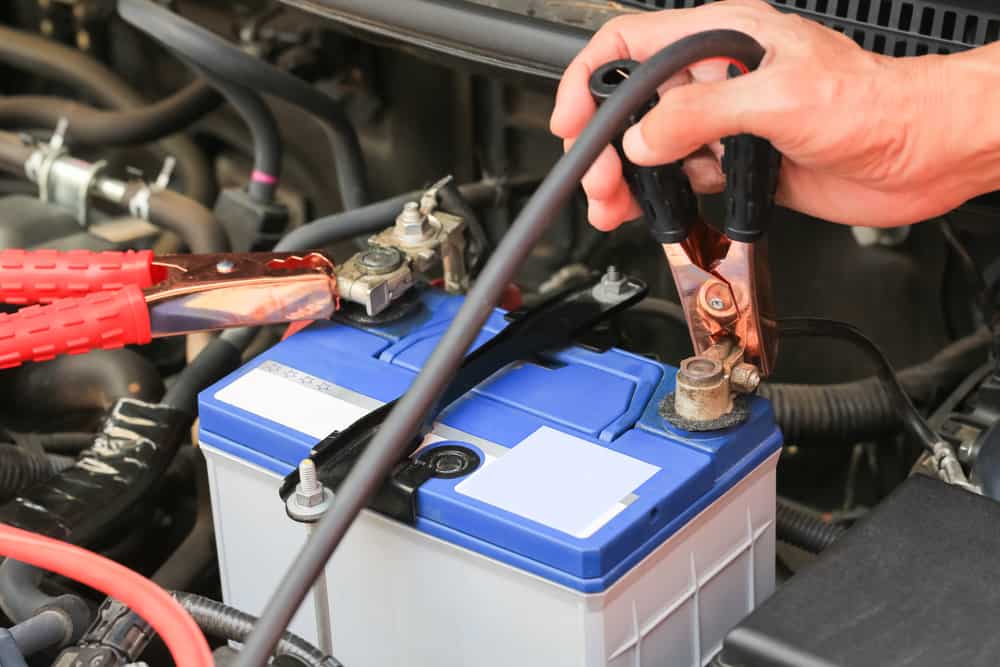When you look at the inside of a car, you will notice that there is a lot of technology. But not all of this technology is necessary. The main reason why we need batteries in a vehicle is because without them, a car would never work.
You will also find that there are two types of batteries in a car: primary and secondary batteries. These two kinds of batteries differ in their purpose. Primary batteries are used to provide a constant current, whereas secondary ones are used to provide temporary bursts of energy. A car uses the latter kind to power accessories, lights, and other things.
The amount of charge your battery holds determines whether your car works or not. If you don’t know the exact amount of charge that is in your car’s battery, you should do an inspection.
First thing, disconnect all the wires from your battery. Then, open up your hood and remove the access panel on top of the battery.
How Many Amps Is a 12 Volt Car Battery?
A car battery is made up of two cells. Each cell contains a zinc anode, a copper cathode, a separator, a cup, and an electrolyte. The amount of amperage that you have available depends on how much current the batteries are capable of producing.
In order to determine the number of amps that your car battery can produce, you need to know the voltage rating of each cell. A standard 12-volt automotive battery has a nominal voltage of 13.2 volts. If the battery is fully charged, it will be able to provide approximately 1 amp of power.
If you’re looking to buy new car batteries, then you should consider buying a battery with the highest possible output capacity. This means that you’ll want to look for a battery that has at least 14.4 volts.
You also need to make sure that you don’t exceed the maximum amperage that your vehicle’s electrical system is designed to handle. For example, most modern vehicles are equipped with an alternator.
This device is responsible for charging up the battery whenever the engine isn’t running. When this happens, the alternator will draw more than 100 amps of electricity from the battery. If you try to charge your battery beyond its limits, then there is a chance that it could overheat and damage itself.
Is It Better to Charge a Battery at 2 Amps or 10 Amps?
If you’re looking into buying a car battery, then you should be aware of the difference between amp hours and amperes. Amp hours is the number of times that the battery will deliver power.
Amp hours is measured in milliamp-hours (mAh). You can calculate this by multiplying the voltage (in volts) by the current (in amps), divided by 1,000. For example, a 12V battery with a 3.6 amp capacity would have a mAh of 0.36.
In contrast, amperes is the amount of electricity that flows through a circuit. A typical household outlet provides 120 watts of continuous use, so it’s important to know how many amps you need for your car.
For instance, if you want to charge your vehicle overnight, you’ll need to purchase a battery that has enough energy to provide 100 amps. If you want to charge the same battery at 2 amps, you’d only need to buy one. This is because 100 amps equals 2 amps.

What Happens If You Charge a Battery with Too Many Amps?
A car battery is a device that converts chemical energy into electrical energy. This process can be used to power a variety of devices. When it comes to charging your car’s battery, you need to make sure that you don’t exceed the recommended amp limit.
You can use an ammeter to determine how much current you’re using. If you have any questions, you should contact a professional. Otherwise, you could damage your vehicle.
If you want to know more about this topic, then you can read the article below.
It’s important to note that batteries are not designed to handle high levels of current. You shouldn’t try to push your car’s battery beyond its limits.
This means that you shouldn’t leave a charger plugged in all day long. It’s also wise to disconnect the charger when you’re done. Your car’s battery needs time to cool down before you start driving again.
In addition to this, it’s best to keep your vehicle away from heat sources and direct sunlight. That way, you won’t burn up the battery.
How Many Amps Is a Car Battery
When you want to start up your car, you’ll usually turn the ignition key. However, before you can actually drive off, you have to supply enough electricity to run the starter motor. That’s why you always need to make sure that your car battery has plenty of juice. If it doesn’t, then your engine won’t start.
You should also know that most cars use 12 volts of electrical current. A typical car battery provides between 7 and 15 amps of electricity. So, you can safely assume that each amp is equal to one volt.
This means that you will need at least seven or eight amps to get your car started. But, a lot of people don’t realize this. In fact, they think that their batteries are stronger than they really are.
So, what happens if you try to crank up the voltage on your car battery? You could damage it, right? Well, not necessarily. The truth is, there isn’t any real danger in cranking up your car battery’s voltage.









